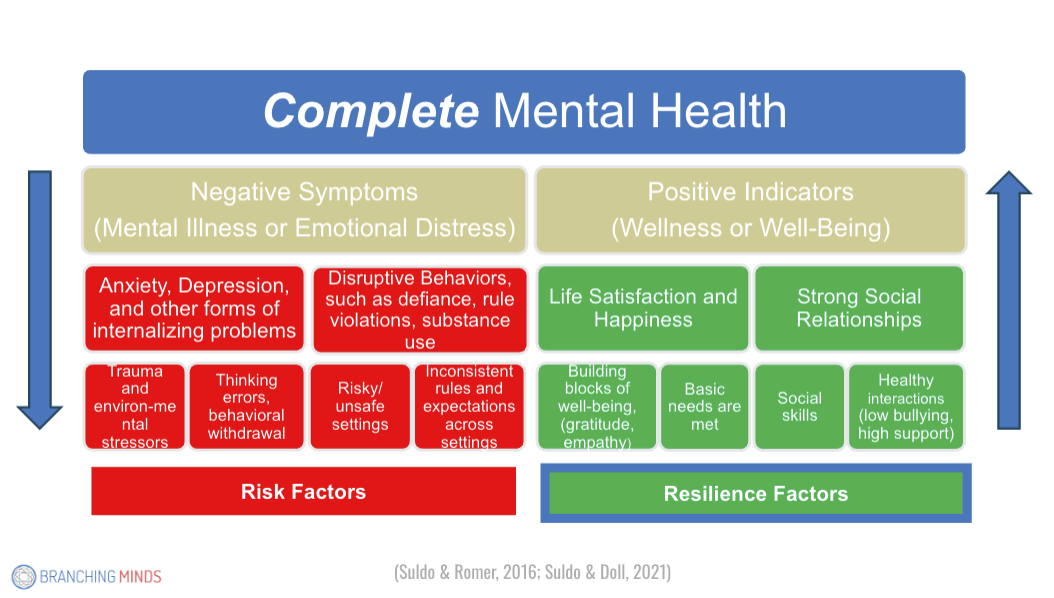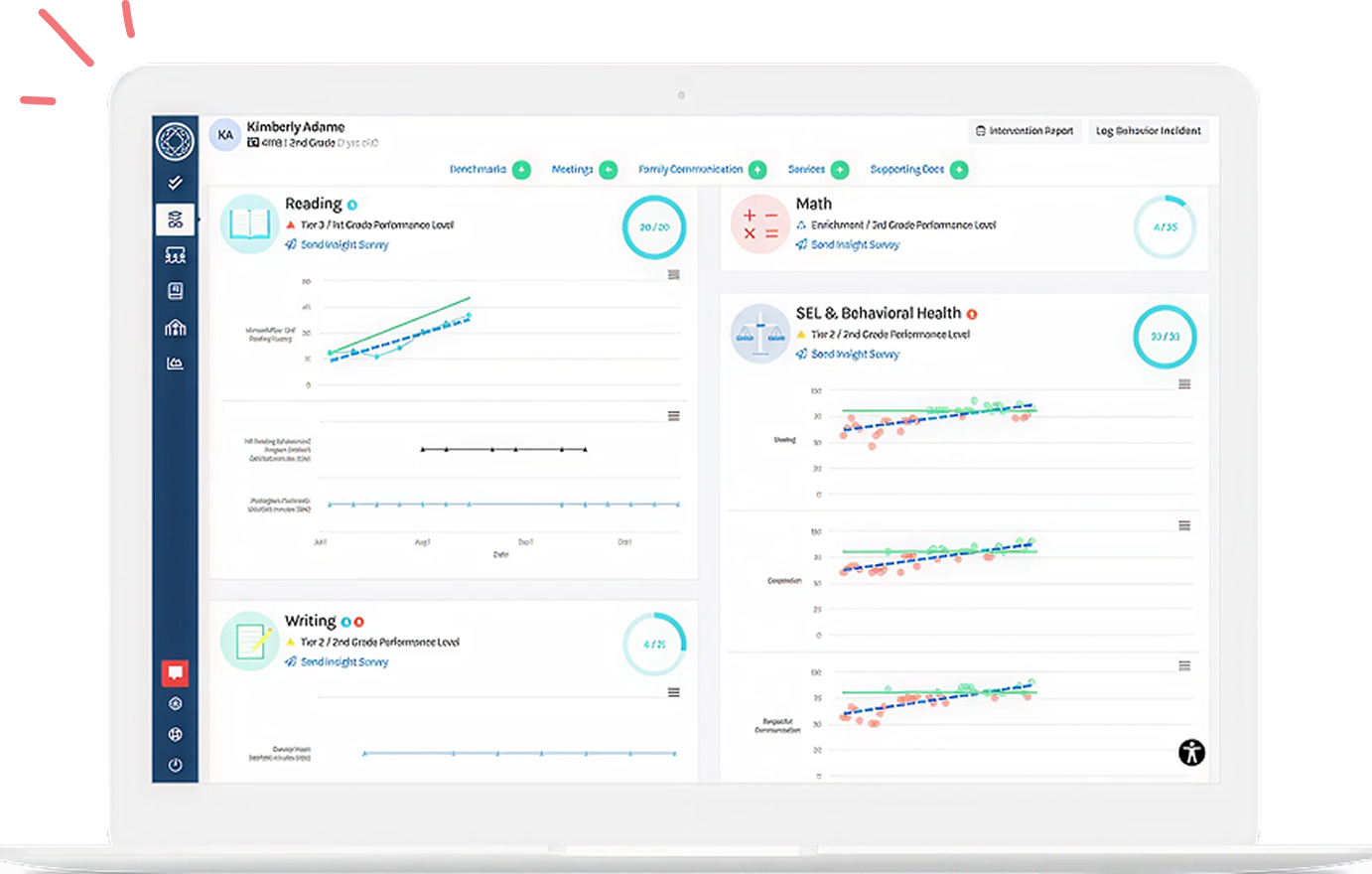The success of any Multi-Tiered System of Supports (MTSS) framework hinges on one critical factor: how well resources are aligned to address students' needs.
From funding and staffing to time and data, the challenge for schools lies in turning the possibility of comprehensive mental health and academic support into practice that delivers better student outcomes.
 Aligning MTSS Resources with Data-Driven Student Support
Aligning MTSS Resources with Data-Driven Student Support
To move from possibility to practice, schools must align resources intentionally and efficiently.
This involves:
- Understanding Needs Through Data: Universal screening or other data collection methods provide insights into the proportion of students requiring different levels of support. Schools can then use this information to allocate resources where they are most needed and will be most effective.
- Accurate Resource Mapping: Identifying available interventions, personnel, and time allocations is crucial before implementing new programs. Schools must evaluate their capacity and determine which supports can realistically be delivered.
- Establishing Decision-Making Criteria: Clear guidelines for how students enter and exit various tiers of support ensure that intervention programs are targeted appropriately (and are actually working!)
- A Localized, Adaptive Approach: MTSS frameworks must be tailored to the unique challenges of each school. There is no “one-size-fits-all” solution. Effective alignment requires considering the school’s base rates of need, the skills and availability of staff, and the logistical realities of time and budget constraints.
 |
|
Beyond Compliance with Proactive Interventions
A critical shift in MTSS practice involves moving beyond compliance-driven implementation. Instead of checking boxes, schools should prioritize interventions that address the root causes of student challenges while promoting resilience and coping skills. This means adopting a proactive model that benefits all students, not just those with the most visible needs.

➡️ Resource: Changing the Way (and the Reason) You Document Behavior
MTSS Tools for Effective Decision-Making
Emerging tools like simulation modeling offer a glimpse into the future of MTSS resource alignment. These systems allow schools to simulate resource allocation scenarios and predict their impact, enabling better-informed decisions about where to invest time, funding, and staff.
➡️ Related Resource: How To Use Progress Monitoring Data To Guide Decision Making in MTSS.
Resources for Effective Mental Health Support
Turning the possibility of MTSS into practice requires deliberate attention to the needs of students and educators alike. Through thoughtful alignment of resources, MTSS becomes more than a framework—it becomes a powerful tool for providing much-needed mental health support in schools.
| Resources from, "Possibility to Practice: Aligning MTSS Resources for Equitable Mental Health Support." ➡️ Guide: Consultation Resource Guide for School Leadership Teams |
Unlock Powerful MTSS Behavior Resources
We're dedicated to empowering educators with the tools and knowledge they need to succeed. Through free webinars and valuable resources, we explore the MTSS framework, behavior support best practices, and how Branching Minds can enhance your efforts.
Stay updated on upcoming webinars, gain exclusive resources, and receive practical tips for supporting student behavior in the classroom.
Behavior Documentation Reimagined💫Empower Educators. Meaningful DataLearn more about how Branching Minds can help make your MTSS vision a reality, with a comprehensive MTSS software platform, professional development, and unmatched customer support. Request a demo today!
|

About the author
Larissa Napolitan
Larissa Napolitan is the Content Marketing Manager for Branching Minds and the host of Branching Minds' podcast "Schoolin' Around." As a former middle school English teacher and instructional coach, she has over 13 years of experience building systems for improvement, training and coaching teachers in new technology and instructional methods, and leading efforts to build curriculum and literacy initiatives. She holds Masters's degree in Curriculum and Instruction and Education Administration from Emporia State University. She is passionate about telling the stories of educators and all that they do to support students.

Your MTSS Transformation Starts Here
Enhance your MTSS process—book a Branching Minds demo today







